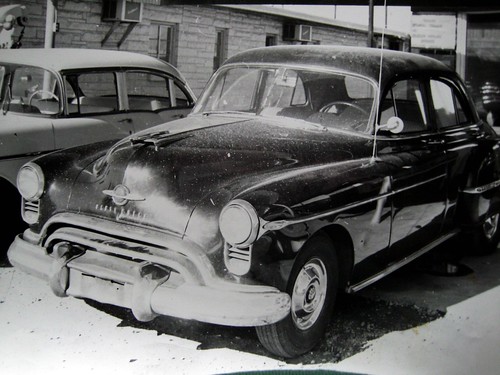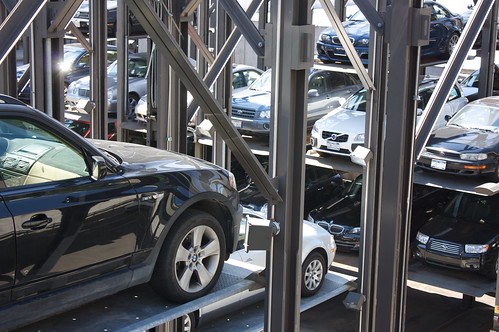 |
| From Hugo90 on Flickr |
Seems like a no-brainer, right? Manufacturing a new car requires enormous mining, manufacturing, transportation and other costs and energy inputs, while a used car doesn't need to be manufactured; it already is. Case closed.
Or is it? The more I thought about it, the more I realized that the answer really lies in the frame you put around it.
 If you are worried only about your own personal environmental footprint, then I think the used car is likely better. But if you are concerned about the entire planet (which if you are asking environmental questions like this, you presumably are), then a larger circle has to be drawn than just around yourself, and that changes the answer.
If you are worried only about your own personal environmental footprint, then I think the used car is likely better. But if you are concerned about the entire planet (which if you are asking environmental questions like this, you presumably are), then a larger circle has to be drawn than just around yourself, and that changes the answer.When one goes to purchase their replacement vehicle, what happens to the one they already have? In most cases it is sold to someone else, who eventually sells it to someone else until it finally completely dies after about 17 years and several owners.
 In fact, every car that is manufactured will be on the road until it finally is totaled or gives up the ghost. Your particular ownership of that car is just a way station on the path from manufacturer to junkyard.
In fact, every car that is manufactured will be on the road until it finally is totaled or gives up the ghost. Your particular ownership of that car is just a way station on the path from manufacturer to junkyard.What we environmentalists want to see is manufacturers churning out more and more high mileage and hybrid cars and working desperately to design and build the next, even better generation of vehicles.
Who do the manufacturers care about? New car buyers. They claim over and over that they manufacture to meet the demand of buyers (it's why GM claims it was building so many SUVs, right?). They don't care about used-car buyers (although I concede demand for used cars may send a weak signal back up the food chain, but much weaker than a direct purchase). If I buy a new, cutting edge hybrid, then I'm sending a signal to the manufacturer to make more of those. If I buy a used car, then someone else is sending that signal, not me, the environmentalist--and they may be buying a big gas guzzler. Buying a used car is not reducing the total number of manufactured cars by one nor reducing the number of cars going to the junkyard: remember, I'm just a way station along the car's trip.
 |
| (photo by Adam Franco on Flickr) |
In the end, the decision about replacing your car includes a lot of factors, not the least of which is your own personal financial situation. But if you're thinking about a new car, but have considered a used car for environmental reasons, think again.
BTW - Slate did a comparison that also comes out in favor of the new Prius even without invoking my macroeconomic and macro-environmental arguments.




No comments:
Post a Comment